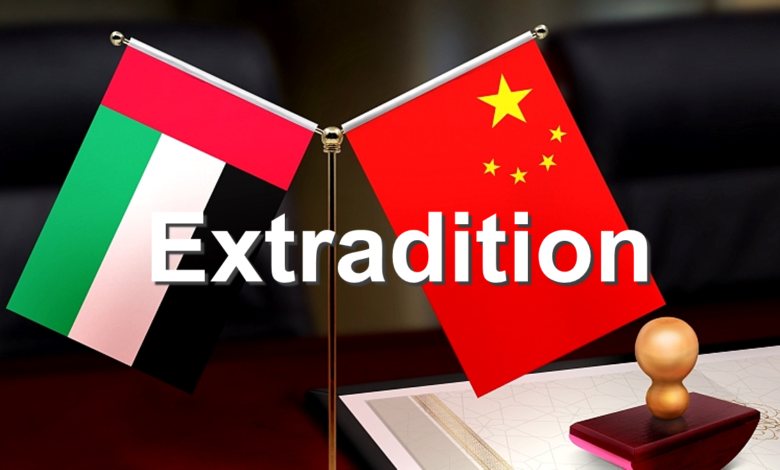Introduction to Extradition between the UAE and China
The Extradition between China and the UAE has become an essential topic in international law due to the growing economic and diplomatic ties between the two nations.

Extradition is a legal process that allows one country to transfer a suspect or convicted individual to another jurisdiction for prosecution or to serve a sentence. The Extradition between China and the UAE has become an essential topic in international law due to the growing economic and diplomatic ties between the two nations. While both countries cooperate on criminal matters, extradition involves complex legal and political considerations that must align with international treaties and national laws.
International Agreements and Extradition
Extradition between the UAE and China is governed by bilateral agreements and international treaties that outline the conditions for surrendering individuals. These agreements define the crimes eligible for extradition, legal procedures, and human rights protections. One of the key mechanisms used in extradition cases is the Interpol Red Notice in Dubai, which acts as an international alert to track and detain individuals wanted by law enforcement agencies. A Red Notice does not equate to an automatic extradition but serves as a request for authorities to apprehend a suspect until legal proceedings commence.
The Legal Extradition Process: How Does It Work?
The extradition process typically begins when one country submits a formal request for the transfer of a fugitive. The request must meet the legal requirements outlined in the existing extradition treaty between China and the UAE. Once the request is received, authorities in the requested country review the case, ensuring it complies with legal standards and does not violate human rights protections. Legal experts often assist in challenging extradition, particularly in cases involving political offenses or unfair trials. In some instances, individuals facing extradition seek Interpol Red Notice removal to prevent their arrest or detention in a third country.
Main Legal Barriers to Extradition
While extradition treaties facilitate international cooperation, legal barriers can complicate the process. These barriers include concerns over due process, potential human rights violations, and the principle of dual criminality, which requires that the alleged crime be considered illegal in both jurisdictions. Additionally, some extradition requests face rejection due to political motivations or lack of sufficient evidence.
Practical Examples of Extradition between the UAE and China
There have been several high-profile extradition cases between the UAE and China, often involving financial crimes, fraud, and corruption. These cases highlight the challenges of balancing international legal obligations with national interests. Some individuals facing extradition attempt to delay proceedings by filing appeals, seeking asylum, or challenging the legitimacy of charges.
The Role of Lawyers and Human Rights Defenders in the Extradition Process
Legal professionals and human rights organizations play a crucial role in extradition cases by ensuring that extradition laws are applied fairly and that individuals receive legal representation. They assess whether extradition requests comply with international law and advocate for defendants’ rights in cases where extradition could result in unfair treatment or mistreatment in the requesting country.

The Importance of Upholding International Standards
Adhering to international legal standards is essential to maintaining the credibility and fairness of the extradition process. Both the UAE and China must ensure that extradition procedures align with human rights conventions, due process, and the rule of law. By upholding these principles, extradition can serve as an effective tool for combating transnational crime while protecting individuals from wrongful prosecution.
The extradition framework between the UAE and China continues to evolve, reflecting changes in diplomatic relations, international legal obligations, and human rights concerns. As legal experts and international organizations monitor developments, the need for fair and transparent extradition procedures remains a global priority.











